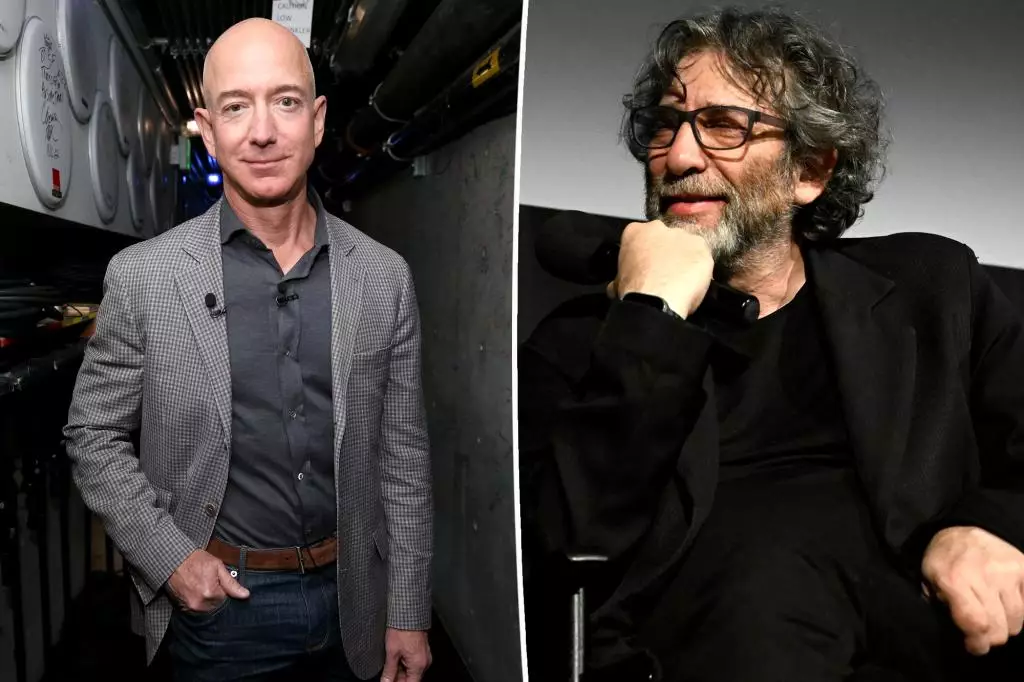Neil Gaiman has long been celebrated as a luminary in the literary realm, captivating audiences with his whimsical yet profound tales. From “The Sandman” to “American Gods,” Gaiman’s oeuvre is a testament to his imaginative prowess and unique narrative style. However, his stellar reputation is currently tarnished by serious allegations of sexual misconduct that have profoundly affected both his public persona and professional engagements.
Recently, a podcast titled “Master: The Allegations against Neil Gaiman” brought forth disconcerting testimonies from multiple women who accused the author of engaging in non-consensual sexual acts. As these allegations gained traction, Gaiman found himself facing a media storm, leading to an inevitable distancing from prominent literary circles. Once revered, his presence at gatherings such as Jeff Bezos’ exclusive Campfire retreat has become uncertain, with sources indicating that his anticipated invitation may not materialize.
The implications of these accusations extend beyond social interactions; they have impacted Gaiman’s work as well. Amazon Prime Video has reportedly halted production on the adaptation of his beloved work “Good Omens,” a title laden with irony amidst the ongoing crisis. Although Gaiman has expressed willingness to recede from the project to prevent disruption, it raises concerns about the future of collaborations associated with his name. This decision mirrors a broader trend within the industry where creative professionals are often sidelined following allegations, regardless of their outcomes.
In light of the allegations, Gaiman has vehemently denied any wrongdoing, describing the accusations as “disturbing.” He calls into question the validity of the accounts and navigates the precarious space between defending oneself and the societal expectation for accountability. This response, while asserting his innocence, invites scrutiny over how the literary community manages such allegations against prominent figures. The polarity of public opinion reflects not only Gaiman’s legacy but also evolving societal standards regarding consent and harassment.
Furthermore, the intertwining of personal and professional spheres is ever-present in discussions regarding Gaiman, especially with his estranged wife, Amanda Palmer, being a Hachette author amidst controversies with Amazon. Gaiman’s prior involvement in dialogues with Amazon representatives during a publishing dispute highlights the complexities of navigating professional relationships while embroiled in personal upheaval. The retreat, once seen as a forum for constructive discourse, now seems poised to turn into a stage for public speculation and gossip surrounding Gaiman’s character.
As the literary community grapples with Gaiman’s diminishing stature, questions arise about the treatment of artists within the ever-evolving landscape of public accountability. The incident underscores a broader cultural shift, challenging the perception of authors as untouchable heroes and exposing the vulnerabilities even the most celebrated among them face. Gaiman’s future—both as a creator and as a figure of cultural significance—remains uncertain, and the reverberations of these allegations will likely resonate for years to come.
While Neil Gaiman once wielded the power of storytelling with an unwavering grip, the recent developments illustrate the fragility of reputation in the face of serious allegations. The juxtaposition of his literary brilliance against the backdrop of disturbing claims paints a complex picture of how society reevaluates its icons in light of new realities. As we await further developments, one can only hope for a resolution that brings clarity, justice, and healing to all involved.

